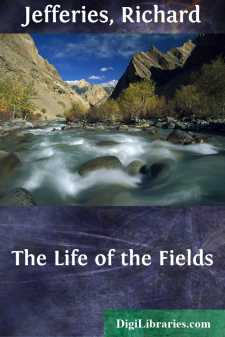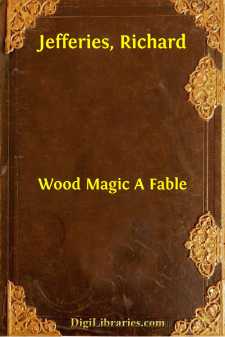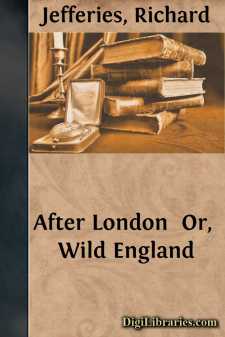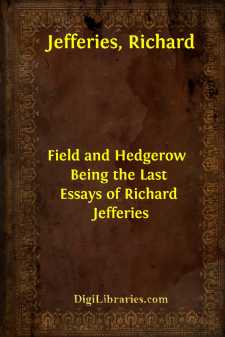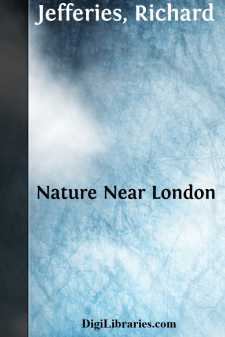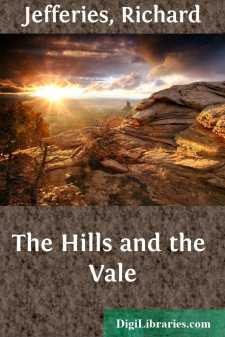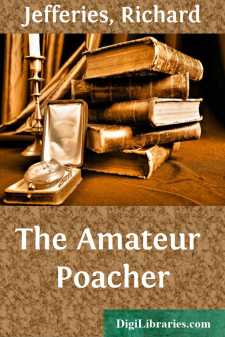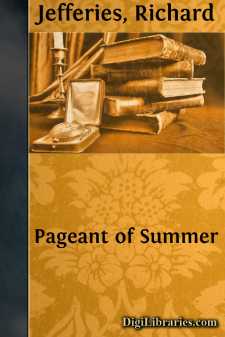Categories
- Antiques & Collectibles 13
- Architecture 36
- Art 48
- Bibles 22
- Biography & Autobiography 813
- Body, Mind & Spirit 142
- Business & Economics 28
- Children's Books 17
- Children's Fiction 14
- Computers 4
- Cooking 94
- Crafts & Hobbies 4
- Drama 346
- Education 46
- Family & Relationships 57
- Fiction 11829
- Games 19
- Gardening 17
- Health & Fitness 34
- History 1377
- House & Home 1
- Humor 147
- Juvenile Fiction 1873
- Juvenile Nonfiction 202
- Language Arts & Disciplines 88
- Law 16
- Literary Collections 686
- Literary Criticism 179
- Mathematics 13
- Medical 41
- Music 40
- Nature 179
- Non-Classifiable 1768
- Performing Arts 7
- Periodicals 1453
- Philosophy 64
- Photography 2
- Poetry 896
- Political Science 203
- Psychology 42
- Reference 154
- Religion 513
- Science 126
- Self-Help 84
- Social Science 81
- Sports & Recreation 34
- Study Aids 3
- Technology & Engineering 59
- Transportation 23
- Travel 463
- True Crime 29
Richard Jefferies
Richard Jefferies (1848-1887) was an English nature writer known for his vivid and detailed depictions of the English countryside. His works, such as "The Story of My Heart" and "After London," blend lyrical prose with an acute observation of rural life and the natural environment. Jefferies' writing has had a lasting impact on nature literature, influencing many subsequent writers and environmentalists.
Author's Books:
Sort by:
THE PAGEANT OF SUMMER I Green rushes, long and thick, standing up above the edge of the ditch, told the hour of the year as distinctly as the shadow on the dial the hour of the day. Green and thick and sappy to the touch, they felt like summer, soft and elastic, as if full of life, mere rushes though they were. On the fingers they left a green scent; rushes have a separate scent of green, so, too, have...
more...
CHAPTER IX A pair of well-matched bays in silver-plated harness, and driven by a coachman in livery, turn an easy curve round a corner of the narrow country road, forcing you to step on the sward by the crimson-leaved bramble bushes, and sprinkling the dust over the previously glossy surface of the newly fallen horse chestnuts. Two ladies, elegantly dressed, lounge in the carriage with that graceful...
more...
CHAPTER I. SIR BEVIS. One morning as little "Sir" Bevis [such was his pet name] was digging in the farmhouse garden, he saw a daisy, and throwing aside his spade, he sat down on the grass to pick the flower to pieces. He pulled the pink-tipped petals off one by one, and as they dropped they were lost. Next he gathered a bright dandelion, and squeezed the white juice from the hollow stem, which...
more...
OKEBOURNE CHACE. FELLING TREES. The great house at Okebourne Chace stands in the midst of the park, and from the southern windows no dwellings are visible. Near at hand the trees appear isolated, but further away insensibly gather together, and above them rises the distant Down crowned with four tumuli. Among several private paths which traverse the park there is one that, passing through a belt...
more...
CHAPTER ITHE GREAT FOREST The old men say their fathers told them that soon after the fields were left to themselves a change began to be visible. It became green everywhere in the first spring, after London ended, so that all the country looked alike. The meadows were green, and so was the rising wheat which had been sown, but which neither had nor would receive any further care. Such arable fields as...
more...
HOURS OF SPRING. It is sweet on awaking in the early morn to listen to the small bird singing on the tree. No sound of voice or flute is like to the bird's song; there is something in it distinct and separate from all other notes. The throat of woman gives forth a more perfect music, and the organ is the glory of man's soul. The bird upon the tree utters the meaning of the wind—a voice of...
more...
NATURE NEAR LONDON WOODLANDS The tiny white petals of the barren strawberry open under the April sunshine which, as yet unchecked by crowded foliage above, can reach the moist banks under the trees. It is then that the first stroll of the year should be taken in Claygate Lane. The slender runners of the strawberries trail over the mounds among the moss, some of the flowers but just above the black and...
more...
INTRODUCTION This book consists of three unpublished essays and of fifteen reprinted from Longman's Magazine, Fraser's Magazine, the New Quarterly, Knowledge, Chambers's Magazine, the Graphic, and the Standard, where they have probably been little noticed since the time of their appearance. Several more volumes of this size might have been made by collecting all the articles which were...
more...
CHAPTER I THE FIRST GUN They burned the old gun that used to stand in the dark corner up in the garret, close to the stuffed fox that always grinned so fiercely. Perhaps the reason why he seemed in such a ghastly rage was that he did not come by his death fairly. Otherwise his pelt would not have been so perfect. And why else was he put away up there out of sight?—and so magnificent a brush as he had...
more...
I. Green rushes, long and thick, standing up above the edge of the ditch, told the hour of the year as distinctly as the shadow on the dial the hour of the day. Green and thick and sappy to the touch, they felt like summer, soft and elastic, as if full of life, mere rushes though they were. On the fingers they left a green scent; rushes have a separate scent of green, so, too, have ferns, very...
more...


